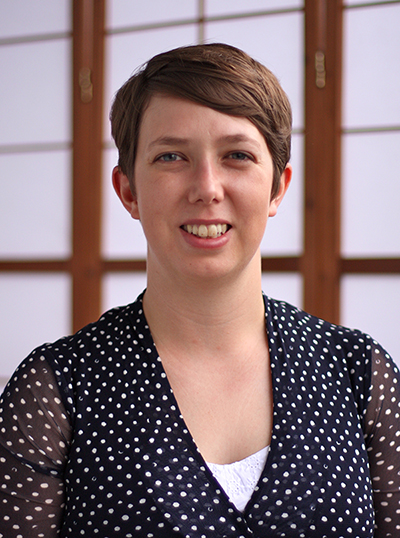July 1, 2015, by Michael Jennings
Nottingham physicist receives medal for ‘pioneering’ work with dark energy
Dr Clare Burrage has been awarded the Maxwell medal and prize by the Institute of Physics (IOP) for outstanding contributions to the field of dark energy research.
The award is presented to Dr Burrage, Royal Society University Research Fellow and proleptic lecturer in The University of Nottingham’s School of Physics and Astronomy, for her research into dark energy, in particular for the development of methods of testing for fifth forces from astrophysical probes through to atom interferometry experiments.
Dr Burrage said: “I felt very honoured just to be nominated for the award. When I heard that the IOP had decided to give it to me I was stunned.”
The IOP introduced the Maxwell medal and prize in 1961, with the aim to recognise outstanding contributions to theoretical, mathematical or computational physics by physicists who are at an early stage in their career.
Pioneering the search for dark energy in the lab
Dark energy is the mysterious substance driving the expansion of the universe to accelerate today. While previous attempts to study dark energy have focused on observing the evolution of galaxies over the largest possible distance scales, Dr Burrage has explored the way it interacts with other particles on much shorter distance scales, and worked to design laboratory experiments to detect and study the dark energy field.
The IOP said: “Dr Burrage has pioneered the development of searches for dark energy in terrestrial laboratory experiments and astrophysical observations. She has an outstanding breadth of expertise spanning quantum field theory, cosmological perturbation theory, collider phenomenology, axion searches and cold atom techniques. This expertise has allowed Dr Burrage to determine the best current constraints on a variety of different ways in which dark energy can interact with matter and electromagnetic fields. She has also developed new tests for dark energy which are now part of the standard tool-kit to search for dark energy.”
An ambitious new experiment
Dr Burrage’s recent work has proposed a new experiment to search for the effects of dark energy using atom interferometry. She is collaborating with the Centre for Cold Matter at Imperial College London for this experiment, which is already underway and has a realistic chance to confirm or exclude the most popular dark energy models before larger and more expensive cosmological surveys are taken in future.
A full list of IOP award winners 2015 and short citations can be found on their website.


Best of luck to Dr Burrage and colleagues with finding the elusive Dark Energy. Hope it isn’t in a form that will cause a “big-rip”….. Have mentioned this story here :
http://nottinghamscience.blogspot.com/2015/12/stuff-from-uon-in-2015.html